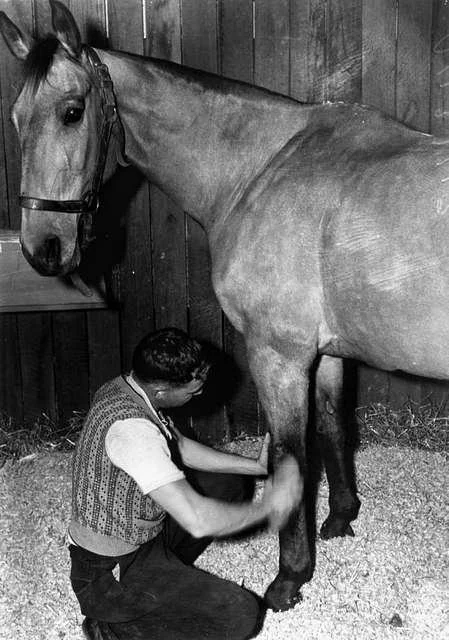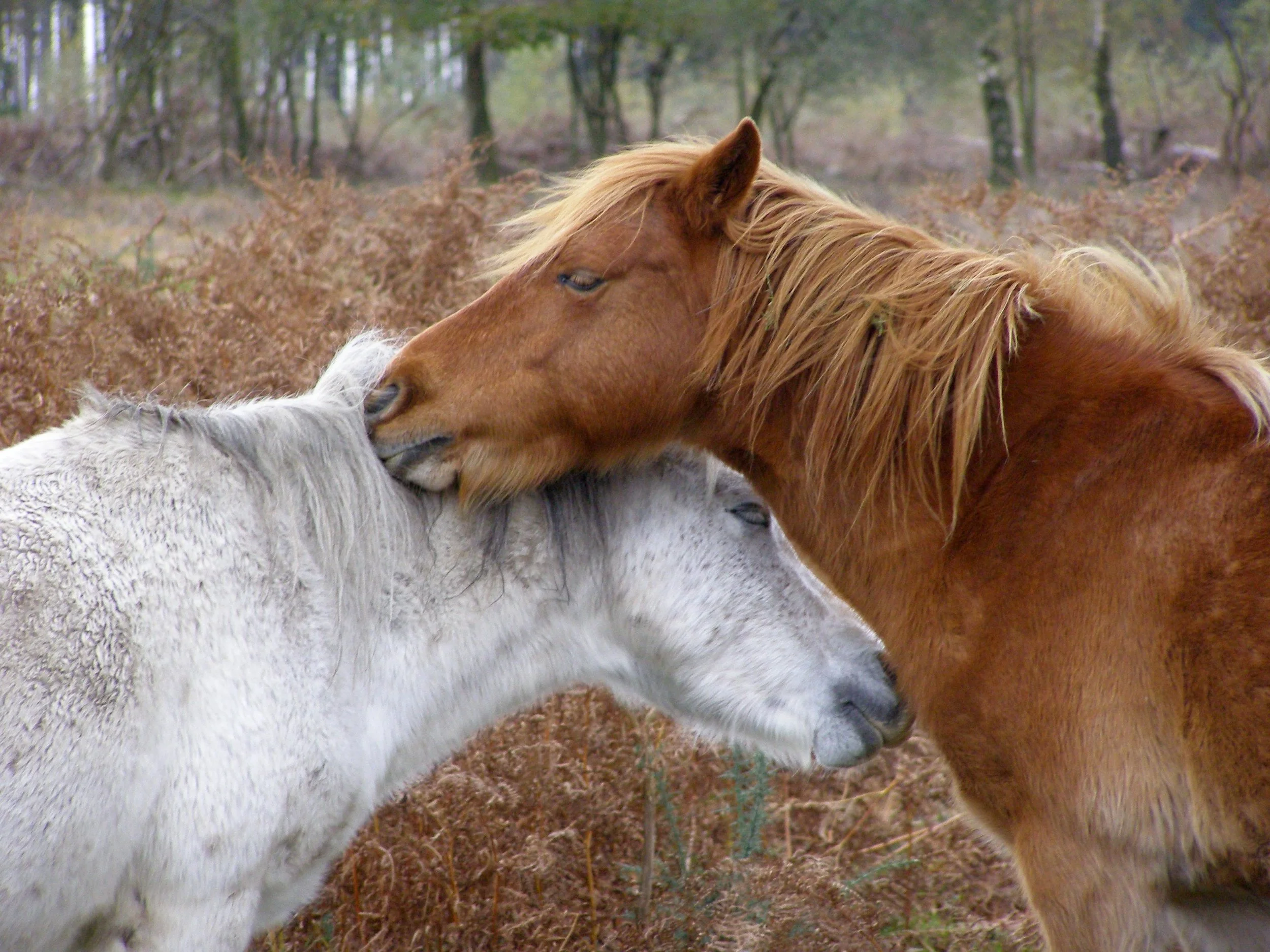Is Your Horse a People Pleaser: Are You?
A vintage photo: standing squarely for pre-race grooming.
Is Your Horse a People Pleaser: Are You?
By Désirée Braganza, EdD, EBQ
I recently listened to a podcast interview with psychotherapist, Meg Josephson, where she talked about research and her own experience with people pleasing. The term has settled into everyday language to describe the need to do good and to be seen doing good even when something essential inside is upset.
What caught my ear wasn’t just what she said about humans; it was how closely her description mirrored patterns I see every day in horses. Meg mentioned the familiar stress responses we often associate with equines: fight, flight, freeze, fiddle, fawn, appease and the many others that do not happen to begin with the letter ‘f’.
Before We Get to That: Some Equine Context
At some point in classification history, equines were labeled prey animals and the label grew until it overshadowed everything else. In lived experience, these tendencies surface with more or less intensity depending on the individual horse, their social bonds and the environment surrounding them. A horse may ping off many small uncertainties if the world is noisy such as when a tree crew is running chainsaws nearby. They may also respond sharply to a single moment because it was deeply concerning or because a series of small concerns quietly stacked until their metaphorical cup ran over.
These patterns are coping strategies shaped by sensory interpretation and survival history. They are not a singular identity. Equines are individuals navigating information that moves through their bodies.
Back to Meg Josephson
Meg notes that in humans, we often describe stress responses by listing the familiar ‘f’ words. What stayed with me was her point that fawning and other appeasement behaviors, said another way, be nice, play nice, make sure no one is upset with you, be liked; can be as strong a stress response as throwing a punch in a bar. Appeasement is the one behavior no one is punished for. No one has ever been sent to detention for being too kind even if their classmates were being unkind.
Being kind to your own detriment is not a coping mechanism. Appeasement doesn’t arise from generosity; it arises from a nervous system trying to maintain safety. When being agreeable becomes the only route that keeps anxiety in check, the deeper stressor underneath is asking to be seen.
Back to Horses
In equine circles, horses who behave well, who never embarrass us in front of others, who comply without hesitation and offer steady affection are often described as reliable. Stoic horses are especially likely to be read as well-behaved. Yet stoicism and the opposites of being overly attentive or friendly can mask a great deal of internal effort.
Two common examples come to mind. The first is the horse who has just been fed hay and is interrupted to be brought to the crossties to be groomed and tacked for a ride. Many horses tolerate this with quiet compliance. Their person sees good manners. A horse may be swallowing their own preferences to keep the moment peaceful.
Another is a horse who does not enjoy grooming. Many horses dislike certain brushes or certain areas being touched yet learn to stand still because stillness avoids conflict. A slight shift of weight or head lowering, breath holding, or a brief tightening of the muzzle may be the only signs they are managing the moment rather than enjoying it.
Photo credit: Jim Champion. Mutual grooming between herdmates at Turf Hill, New Forest, UK.
Both situations show how easily appeasement can be misread as cooperation or even contentment. A horse is smoothing the world around them for our comfort. Of course, many horses enjoy connection and participate willingly; the challenge is not assuming quietness automatically means comfort.
What patterns do you notice in horses around you and in the ways you navigate your own world?
Further Reading
Human Stress, Fawning & Nervous System Patterns
· Meg Josephson — Podcast interviews and writing on fawning, relational stress, and nervous system patterns.
· Gabor Maté, MD — When the Body Says No, exploring stress, repression, and the body’s responses.
Horse–Human Relationships & Emotional Intelligence
· Linda Kohanov — The Tao of Equus and other works on equine–human communication and emotional insight.
· Marc Bekoff, PhD — Articles and books on animal emotions, social behavior, moral intelligence, and the risks of misreading compliance.
Equine Behavior & Scientific Research
· Roger Abrantes, PhD/Ethology Institute — Resources on animal behavior, communication, and applied ethology.
· Christensen, J. W. et al. — Research on equine stress, startle responses, and conflict behavior.
· Visser, E. K. et al. — Studies on equine personality, coping styles, and behavioral reactivity.
· Wathan, J. & Burrows, A. — Research on equine facial expressions and subtle social signals.
Friendly Reminder: These articles are meant to spark thought, not replace expert guidance. Consult equine professionals for individual advice.
Want guidance in applying equine ethology to your horse’s daily care and training? Contact us today. We’re here to help you and your horse move forward with confidence.
About the Author
Désirée Braganza, EdD, EBQ, received her equine behaviorist qualifications from the Natural Animal Centre, located in South Africa. As a member of Bodhi Horse Practice, she collaborates with equine professionals worldwide on research projects specific to experiences of domesticated horses from an ethological lens. She is a horse partner, a rider, and has cared for and supported numerous horses over the years. Désirée recently relocated from Northern California and is now based in Monroe, Georgia, USA. She consults internationally in person and virtually.
We believe in making ideas freely available, without paywalls. If this article resonates with you and you would like to offer your support so other horses may benefit, feel free to participate in a way that feels true to you.

